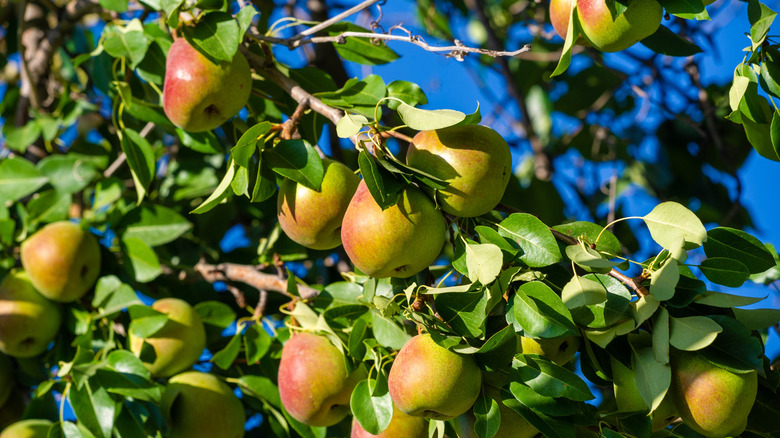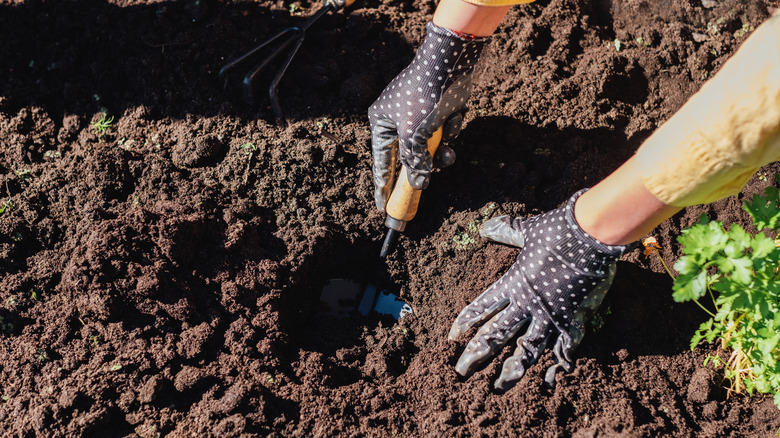The One Herb You Should Plant Near Apple And Pear Trees
Growing and maintaining apple and pear trees is a rewarding experience for any gardener or citrus lover. Besides yielding yummy fruits, the trees can beautify your yard or garden with their flowering blooms and brightly-colored foliage. Fruit trees can also be aided by planting nearby herbs, which can promote healthy growth, deter pests, and rejuvenate nutrients in the soil. One herb that you really should consider planting near your apple and pear trees: Parsley.
Parsley is a biennial herb that thrives most in USDA zones 3 through 9. It's easy to grow since it doesn't need a lot of upkeep, and it is also advantageous for your fruit harvests, since it can help ward off citrus tree pests. The flowers that parsley produces will attract beneficial insects that help keep damage-causing pests away from that tempting fruit.
Pear and apple trees do tend to attract codling moths, which are pests that burrow into your fruits and render them inedible. If your fruit ripens early, you can sometimes avoid dealing with the moths, but don't count on it. Parsley is a better bet for attracting braconid wasps, which are pollinators that are helpful for maintaining growth, and they work to keep the codling moths from accessing fruit trees.
Planting parsley near your fruit trees
Before meeting the goal of eventually planting parsley near fruit trees, the initial steps of growing and caring for parsley plants are fairly simple.
Parsley grows best in soil that drains well, and this herb thrives in an area of your garden that receives adequate sunlight. It may also be helpful to start by growing your parsley indoors within pots that provide good drainage. Ideally, you can begin with seeds in well-soiled pots indoors for a few months once the winter season ends (or after the last frost has occurred), as cold weather can kill the herb.
Once the parsley begins to flower and has developed longer roots, you can transfer it outdoors for companion planting, which involves placing plants near each other to both benefit from their closeness. Using a raised bed is also a best practice, as it prevents the herb from overhydration. You can easily create an elevated area in the soil around the base of your fruit trees, which is excellent for reducing weeds, too.
Parsley makes an excellent companion herb for many other plants in addition to fruit trees. In short, no reason exists not to include this versatile herb in any garden.

